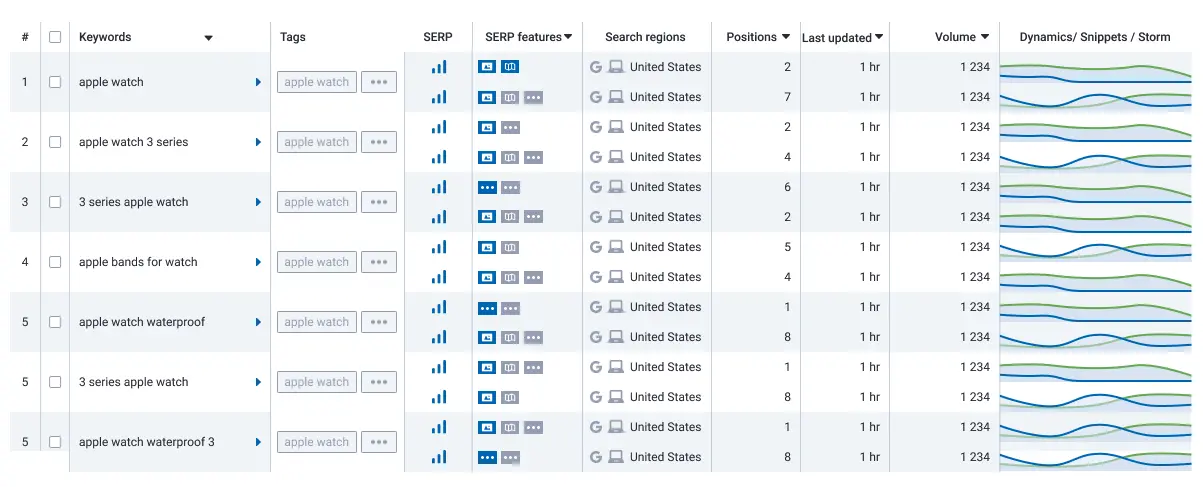The Hosting Insight
Your go-to source for the latest in web hosting news and tips.
Climbing the Google Ladder: Tricks for Keyword Ranking Success
Unlock the secrets to mastering SEO! Discover expert tricks to boost your keyword rankings and climb the Google ladder to success.
Understanding Google's Algorithm: Key Factors for Keyword Ranking
Understanding Google's algorithm is essential for anyone looking to improve their website's visibility in search results. At its core, Google's algorithm evaluates various factors to determine how well a webpage ranks for specific keywords. Some of the **key factors** that influence keyword ranking include content quality, site speed, and mobile-friendliness. For instance, content that is well-researched and provides real value to readers is more likely to rank higher. Additionally, user experience factors such as page loading times and responsive design play a significant role in how Google perceives your site.
Another crucial aspect of Google's algorithm is the relevance of keywords used on your webpage. Properly placed **keywords** within titles, headings, and throughout the content signals to Google what your page is about. To further enhance your keyword ranking, consider implementing semantic SEO practices, which involve using related terms and phrases to support your target keywords. This not only helps Google understand the context of your content better but also improves the overall relevance of your site, leading to higher rankings in search engine results.

Top 10 SEO Strategies to Boost Your Keyword Rankings
Improving your website's visibility in search engines is crucial for driving organic traffic. Here are the Top 10 SEO Strategies you can implement to boost your keyword rankings:
- Keyword Research: Identify the right keywords through tools like Google Keyword Planner to target your audience effectively.
- On-Page SEO: Optimize your content by including keywords in headings, meta descriptions, and throughout your text.
- High-Quality Content: Create valuable, engaging, and relevant content that addresses the needs of your audience.
- Mobile Optimization: Ensure your website is mobile-friendly to cater to the increasing number of mobile users.
- Page Speed: Improve your site's loading time, as faster pages enhance user experience and ranking potential.
- Internal Linking: Use internal links to help search engines understand the structure of your site and boost page authority.
- Backlink Building: Focus on acquiring quality backlinks from authoritative sites to improve your domain authority.
- Social Media Signals: Boost your online presence and engagement on social platforms, which can indirectly influence SEO.
- Local SEO: Optimize your website for local searches by claiming your Google My Business listing and incorporating local keywords.
- Regular Updates: Keep your content fresh and relevant by regularly updating it to enhance its ranking.
How to Conduct Effective Keyword Research for Climbing the Google Ladder
Conducting effective keyword research is crucial for optimizing your content and improving your visibility on search engines. Start by brainstorming potential keywords related to your niche. Utilize tools like Google Keyword Planner or Ahrefs to identify relevant terms that have good search volume and manageable competition. Consider long-tail keywords, as these are often less competitive and can help you attract more targeted traffic. Remember to analyze the search intent behind each keyword; understanding whether users are looking for information, products, or services can greatly influence your content strategy.
Once you have a list of potential keywords, it's important to analyze their effectiveness. Create a spreadsheet to track key metrics such as search volume, competition level, and trending data over time. Prioritize your keywords based on this analysis and focus on integrating them into your content in a natural way. Additionally, don’t overlook the value of LSI (Latent Semantic Indexing) keywords, which are terms related to your primary keywords. By incorporating these into your copy, you can enhance the relevancy of your content, ultimately aiding your climb up the Google ladder.